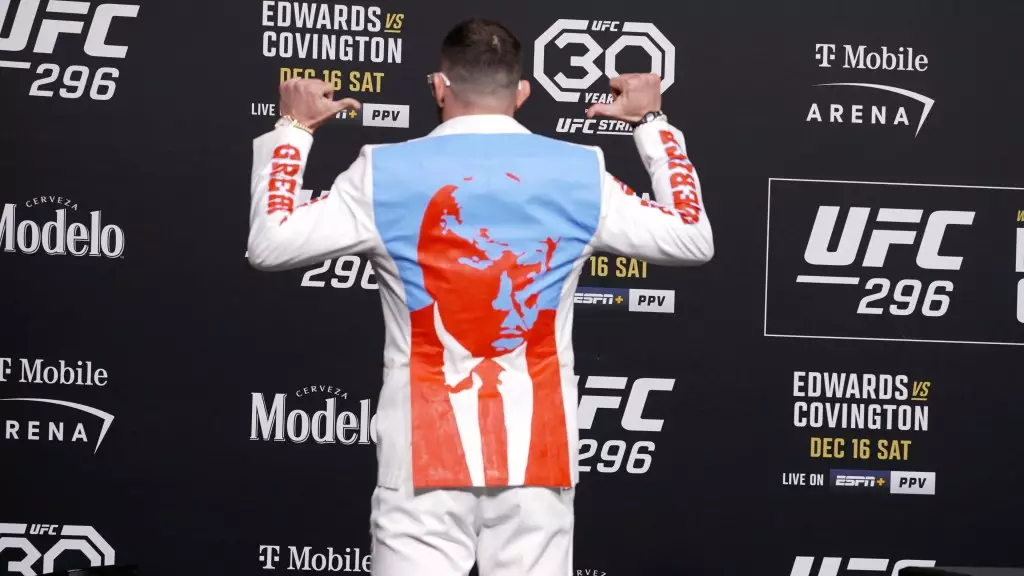In the ultra-competitive world of mixed martial arts (MMA), fighters often craft distinctive personas to enhance their fame and marketability. Colby Covington, a name that resonates throughout the UFC welterweight division, has embraced a “villain” persona that some argue has become more of a mask than an authentic representation of his character. While this persona has undeniably accelerated his rise in popularity, evidenced by his 17-5 MMA record and 12-5 UFC performance, it has also led to questions about the authenticity of his motivations and interactions.
The Fighter as Showman
Covington’s antics, such as his outspoken support for controversial figures like Donald Trump and his often abrasive verbal sparring with opponents, may appear strategic to those who understand the entertaintment fabric of MMA. However, a noted shift in Covington’s behavior has come to light, raising eyebrows within the sport. Former fighter Paul Felder has articulated concerns over Covington’s perceived disconnect between his public persona and private demeanor. The recent interactions between Covington and fellow fighters, such as his respectful encounter with Kamaru Usman, suggest that the man behind the microphone may not be as unyielding as his media portrayals imply.
Paddy Pimblett’s Observations
Adding to this narrative, rising star Paddy Pimblett recounted his own experience with Covington, remarking on a seemingly timid interaction. “Walked past Colby Covington, he stared at the floor… Talks a big game online, sh*ts his undies in person,” Pimblett remarked. This dichotomy between Covington’s brash online presence and his subdued in-person interaction is an intriguing revelation. If true, it begs the question: Is Covington evolving beyond the confines of his self-made persona, or is this merely a strategic retreat from the larger-than-life character he has cultivated?
The Struggle Between Authenticity and Performance
Felder’s insights underline a significant notion—the toll of sustained performance artistry. “I think he’s struggling to keep up that MAGA, Mr. America bully from college persona these days,” Felder posits. This raises an important point about the mental health implications of maintaining a façade. The pressures of upholding such a character can lead to internal conflicts, potentially resulting in an identity crisis. It’s worth pondering whether Covington’s persona is a protective shell or a haunting prison that prevents him from evolving and connecting with those around him.
A Fabricated Reality?
Ultimately, this examination of Covington juxtaposes the construct of celebrity within the sport of MMA with the existential question of who we are when the cameras turn off. While he promotes an image steeped in bravado, it appears there is a more intricate reality at play. Felder believes that when Covington eventually steps away from the octagon, he may look back on his career with a more critical lens, understanding that much of what he’s constructed served to mask who he truly is. The real question remains: will Covington ever genuinely break free from the persona he has projected, or will he be forever defined by the very conflicts he has crafted?

